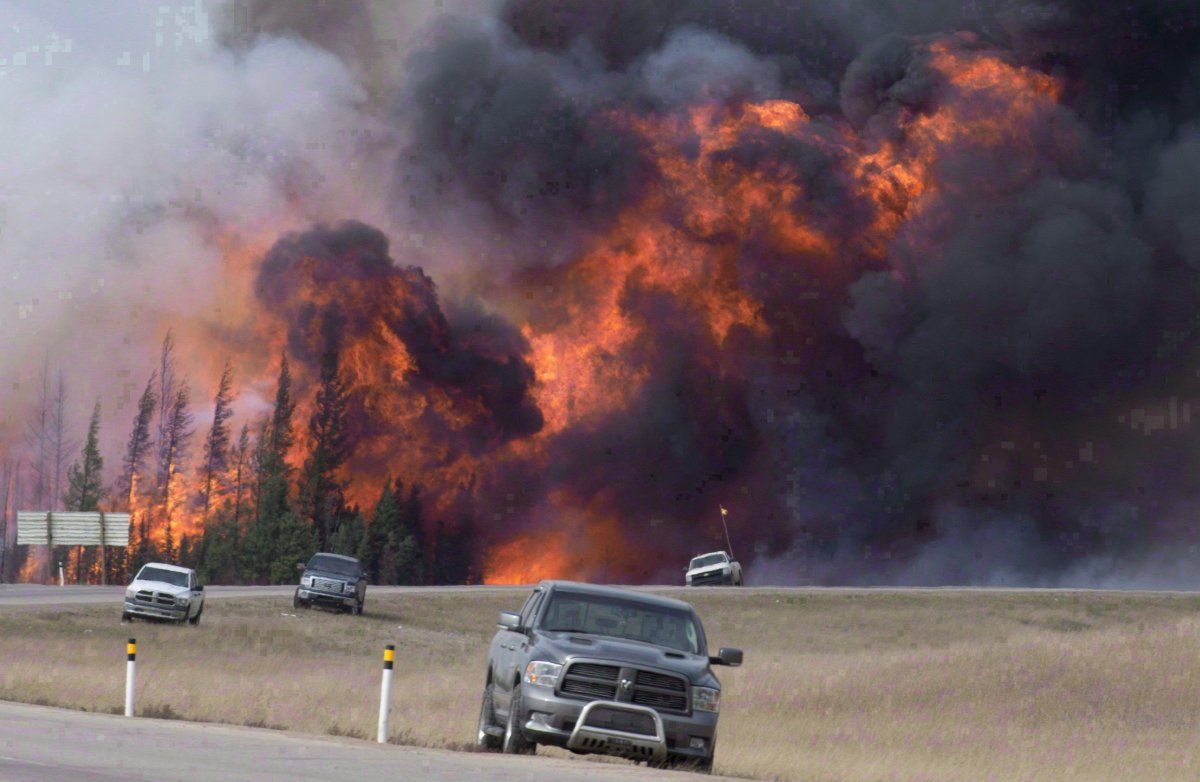An Alberta psychiatrist says the mental health supports brought in after the Fort McMurray wildfires of May 2016 haven’t done enough to help students who lived through the traumatic event.

The city of 88,000 people was evacuated as the fire, known as “The Beast,” destroyed homes and left many fleeing residents wondering if their houses would still be there when they returned.
Dr. Peter Silverstone was part of a recently published report that surveyed 3,070 grade 7-12 students in Fort McMurray and 2,796 students of the same grade range in Red Deer.
The report reveals 31 per cent of students in Fort McMurray had some form of depression, compared to just 17 per cent of Red Deer students. Seventeen per cent of students in Fort McMurray likely had moderately severe depression, and 16 per cent had suicidal thoughts.
WATCH: Former Wood Buffalo fire chief reflects on Canada’s largest wildfire evacuation

Speaking on the Alberta Morning News, Dr. Silverstone says the high school years are a critical time to address mental health.

Get weekly health news
“Most people who have mental health issues — depression, anxiety, drug use, alcohol use — develop them in their late teens, sometimes early 20s,” Silverstone says.
“And if you can intervene at that point, you can change the trajectory of people’s lives.”
Silverstone says the most effective programs to help students dealing with mental health issues are in-school programs that allow kids to deal with day-to-day problems, from bullying to online abuse and relationship issues.
But a trauma like the Fort McMurray wildfire requires more comprehensive programs, and Silverstone says the report’s numbers show that not enough has been introduced.
“Sadly, despite requests to do that, that is not being done by Alberta Health, the Red Cross, or anybody else,” Silverstone says. “People are putting in piecemeal things and that’s simply not enough.”
With a provincial election looming, the psychiatrist says neither the New Democrats nor the United Conservatives have promised to add mental health supports.
He’s hoping that changes.
“Every Albertan experiences problems when we have more people who have mental health illness,” Silverstone said, “and it’s all very well to be aware, but surely it’s better to intervene rapidly, or even to prevent it.”
If you or someone you know is in crisis and needs help, resources are available. In case of an emergency, please call 911 for immediate help.
The Canadian Association for Suicide Prevention, Depression Hurts and Kids Help Phone 1-800-668-6868 all offer ways of getting help if you, or someone you know, may be suffering from mental health issues.






Comments